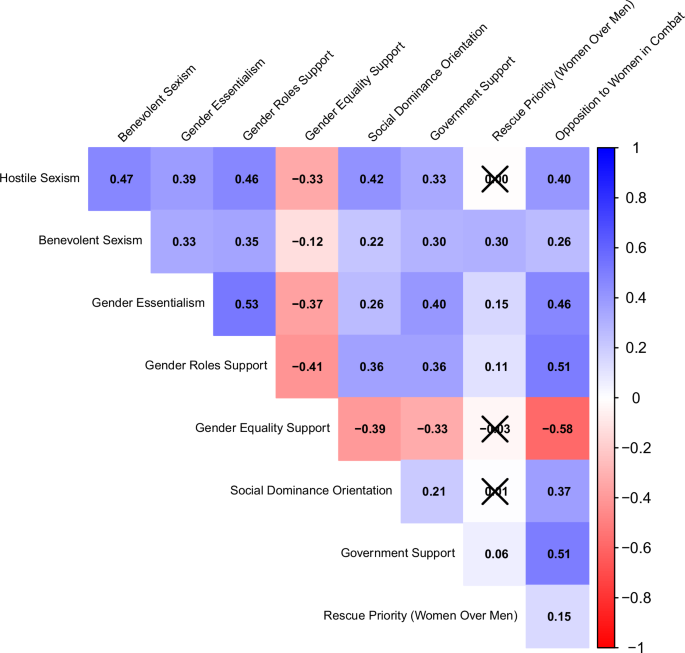Saving Women First? What the Gaza Hostage Crisis Tells Us About Gender and Public Opinion
Published in Social Sciences and Behavioural Sciences & Psychology

The Hostage Crisis and Public Response
On October 7, 2023, Hamas launched a large-scale terror attack on Israel, abducting 251 hostages – men, women, and children – into Gaza. In the weeks that followed, a temporary ceasefire in November 2023 led to the release of most women and children. A second deal in January 2025 reinforced the emerging pattern: adult women were consistently prioritized over adult men.
This order of release triggered intense public debate. For many, prioritizing those seen as more vulnerable (women over men) felt morally self-evident. Others, however, questioned the ethics of basing rescue decisions on group identity rather than individual risk or need. This dilemma was not merely a matter of formal policy; it opened a broader conversation about the values that guide our judgments in times of crisis.
It also raised a difficult question: What happens when care is distributed unequally – not necessarily because some suffer more, but because some are more easily seen as suffering? In this case, the suffering of men risks being overlooked, because it may not fit dominant narratives of vulnerability.
What Predicts Support for "Women First"?
As social psychologists, we set out to understand the beliefs behind public reactions to the hostage releases. The key question was not who was prioritized, but why the public supported or objected to that order. What moral assumptions, gender norms, or ideological frameworks shape how people assess whose lives should be saved first?
We surveyed a large, representative sample of Jewish Israeli adults shortly after the first hostage deal in November 2023. Overall, public support for prioritizing women was widespread: 77 percent favored releasing women before men. Importantly, attitudes followed a clear pattern, strongly tied to beliefs about gender.
People who endorsed benevolent sexism – the belief that women should be cherished and protected by men – were more likely to support releasing women before men. In contrast, those who held hostile sexist views – resenting women as manipulative or undeserving – were more likely to object to the prioritization of women's release.
These patterns held even after accounting for demographic factors such as age, religiosity, exposure to the war, and broader ideological views. In fact, sexist beliefs emerged as the most robust predictors of public opinion on this issue.
The Role of Respondents' Gender and the Power of Parenthood
Respondents' gender made only a modest difference. Men and women expressed largely similar views. Among men, however, benevolent sexism had a stronger effect. Men who saw men's role as protectors were especially likely to support prioritizing women.
We also examined whether public preferences were shaped more by hostages' gender or by ideals of motherhood. Support for releasing mothers before fathers was stronger than for releasing women over men in general, particularly among those high in benevolent sexism. This suggests that motherhood, as a cultural ideal, may weigh more heavily than gender alone in shaping public judgment.
However, as this part of the study was exploratory in nature, future research is needed to test additional mechanisms beyond motherhood itself. For example, do people believe women face heightened risks of sexual violence or pregnancy in captivity? These questions are key to unpacking how perceived vulnerability intersects with gendered cultural narratives.
Public Opinion is Not Policy, But It Matters
The sequence of hostage releases was determined by governments and negotiators, not by the public. Still, public opinion plays a critical role. It reflects collective moral intuitions, shapes the political environment in which decisions are made, and can itself be shaped by official policy.
Rethinking Fairness and Protection
To many, protecting women feels like a moral axiom. Yet our findings show that even moral instincts can be gendered. Preferences that may appear universally true may, in fact, rest on cultural assumptions about who deserves protection – and who does not.
This is not to say that releasing women first was wrong. Rather, it calls for greater clarity about the moral frameworks behind such choices. Are women prioritized because they are more vulnerable, or because social narratives say they should be?
What may feel like moral clarity can, in practice, conceal moral complexity. Cultural norms shape our intuitive responses to suffering, which, though well-meaning, can reinforce systemic biases by amplifying some forms of vulnerability while rendering others invisible.
This includes the suffering of men. Gender bias does not only harm women by limiting their agency or subjecting them to paternalism. It also diminishes empathy for men, especially in militarized or conflict settings where men's pain may be normalized or dismissed. When protection is gendered, the extent of men's suffering may be overlooked – not because it is absent, but because it falls outside the cultural script of who is seen as needing care.
For us, this research enriches how we think about fairness and sacrifice. It made clear that vulnerability is not only about who someone is (such as their gender or social role), but about whether their suffering is recognized by others. In moments of national trauma, when all are at risk, not everyone is equally seen.
As the war and hostage crisis continue to unfold, and as armed conflicts and humanitarian disasters persist around the world, we hope this work contributes to a more evidence-based and ethically reflective public conversation. One that surfaces the assumptions behind our moral instincts and brings to light the values we often take for granted. In times of collective suffering, our judgments about who deserves protection can be shaped by hidden biases. By examining these intuitions, we can begin to see whose pain is acknowledged, whose is overlooked, and how to move toward more just and inclusive responses to human vulnerability – wherever it occurs.
We dedicate this work to the speedy return of the 50 hostages still held in Gaza as of July 27, 2025.
[Read the full study here: https://rdcu.be/exIue]
Follow the Topic
-
Communications Psychology

An open-access journal from Nature Portfolio publishing high-quality research, reviews and commentary. The scope of the journal includes all of the psychological sciences.
Ask the Editor – Collective decision-making
Got a question for the editor about Experimental Psychology and Social Psychology? Ask it here!
Continue reading announcementRelated Collections
With Collections, you can get published faster and increase your visibility.
Intensive Longitudinal Designs in Psychology
Publishing Model: Open Access
Deadline: Mar 31, 2026
Replication and generalization
Publishing Model: Open Access
Deadline: Dec 31, 2026




Please sign in or register for FREE
If you are a registered user on Research Communities by Springer Nature, please sign in